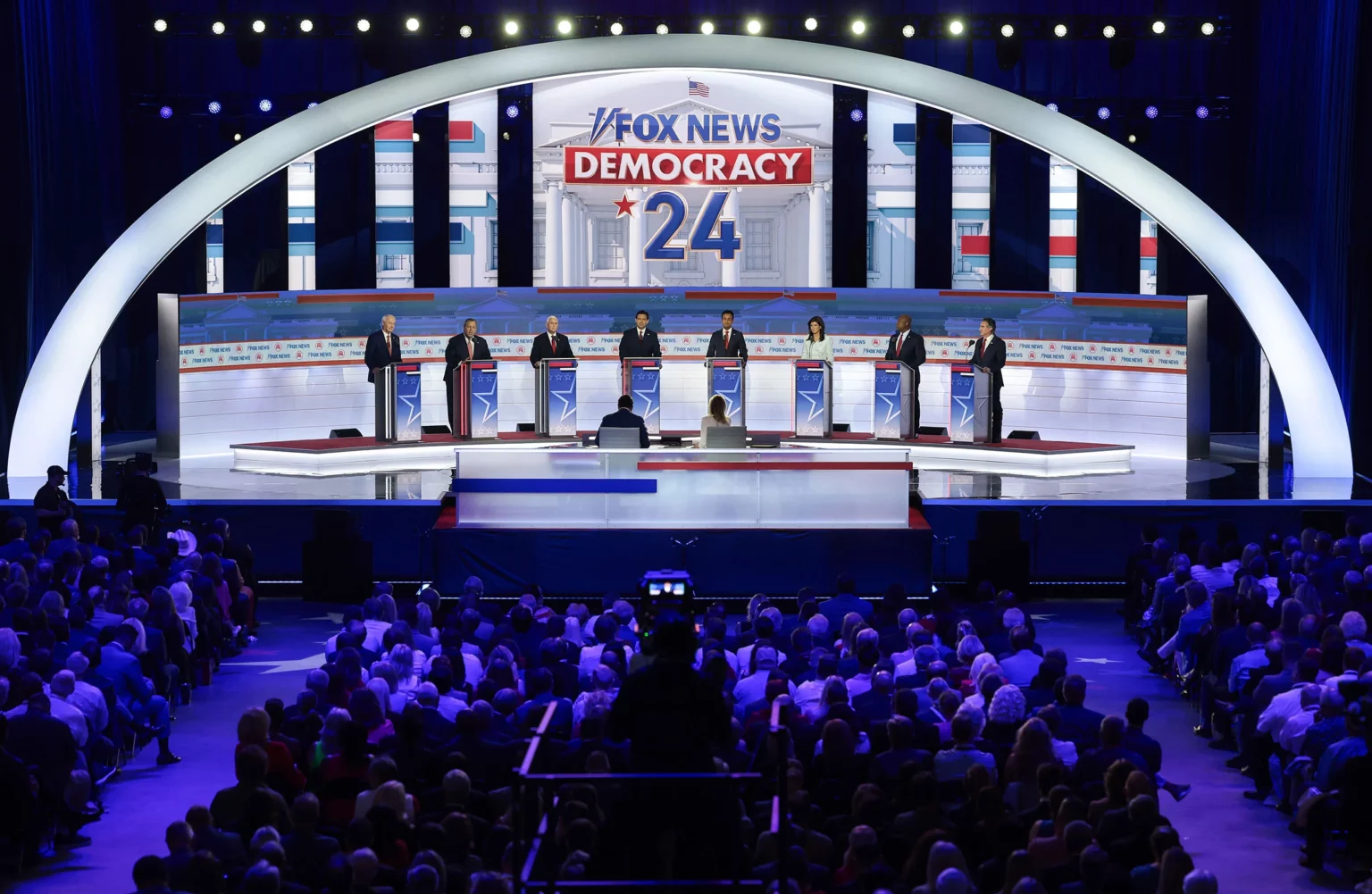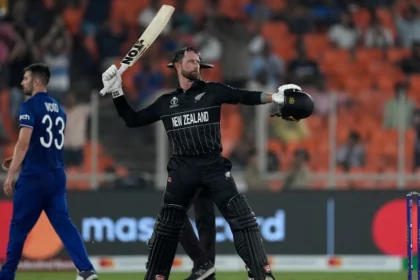The inaugural Republican debate has reached its halfway mark, showcasing a lineup of eight candidates striving to secure their spot as the party’s presidential nominee. The stage was a whirlwind of voices, competing perspectives, and memorable moments that left an indelible mark on the event.
A Spirited Start
The first Republican primary debate burst forth with energy as contenders teamed up to launch a barrage of verbal attacks, aiming their rhetorical jabs at Vivek Ramaswamy and notably absent Donald Trump, who was committed to a Fox News interview rather than the debate stage.
Among the participants in the debate were notable figures such as Florida Governor Ron DeSantis, former UN Ambassador Nikki Haley, US Senator Tim Scott, former Vice President Mike Pence, former New Jersey Governor Chris Christie, North Dakota Governor Doug Burgum, Arkansas Governor Asa Hutchinson, and entrepreneur Vivek Ramaswamy, adding diversity to the perspectives on display.
The topics under scrutiny were wide-ranging, spanning from the contentious issue of abortion to the Russia-Ukraine conflict and the ever-polarizing figure of Donald Trump.
Abortion Takes Center Stage
Within the Republican party, abortion remains a topic of intense debate. While the evangelical base champions a pro-life stance, more pragmatic Republicans recognize the necessity of accommodating a broader range of views to appeal to a wider electorate.
This internal schism came into clear view during the debate as former Vice President Mike Pence and former South Carolina Governor Nikki Haley clashed over the issue. Haley, the sole woman on stage, advocated for acknowledging diverse opinions and building consensus rather than taking an uncompromising stance on abortion. Pence, on the other hand, emphasized his unwavering pro-life position, aiming to secure support from the party’s evangelical base.
Rookie vs. Veteran
In a surprising turn of events, the Republican candidates wasted no time in targeting their fellow contender Vivek Ramaswamy. Former Vice President Mike Pence took the opportunity to highlight his extensive political experience and question the suitability of a political newcomer during these critical times. This ignited a back-and-forth, with Ramaswamy responding with a lighthearted demeanor, embracing his status as a political outsider and citing his campaign’s performance as evidence of his viability.
Seasoned politician and former New Jersey Governor Chris Christie furthered the critique by drawing a comparison between Ramaswamy and artificial intelligence, emphasizing the significance of experience in navigating complex political landscapes.
Navigating International Affairs: The Russia-Ukraine Conundrum
The Russia-Ukraine conflict emerged as a divisive issue within the Republican party. While historical Republican foreign policy leaned towards internationalism, the era of Donald Trump introduced a shift towards an “America First” approach.
During the debate, Ramaswamy’s advocacy for ending military aid to Ukraine clashed with the viewpoints of established Republican opponents. Pence drew parallels between US assistance to Ukraine and the Cold War, highlighting the adage “We achieve peace through strength.” Meanwhile, Haley critiqued Ramaswamy’s foreign policy credentials, asserting that he lacked experience in this arena.
Recent surveys show that a significant portion of Republican voters align with Ramaswamy’s stance on reducing aid to Ukraine. This dynamic creates a challenge for candidates like Pence and Haley, who must endeavor to reshape public opinion to align with their foreign policy visions.
Key Takeaways
As the first Republican debate continued to unfold, it became clear that the clash between tradition and change, experience and innovation, and unity and diversity remains at the forefront of the party’s identity. The spectrum of opinions showcased on stage highlighted the complexity of appealing to both the party’s base and a broader electorate.
As the race for the Republican nomination progresses, candidates will need to adeptly navigate these internal tensions, embrace evolving public sentiment, and present a compelling vision that resonates with a diverse and ever-changing political landscape. The debate stage has illuminated not only the issues but also the strategies that these contenders will employ to vie for the ultimate prize: the chance to represent the Republican party in the upcoming presidential race.




